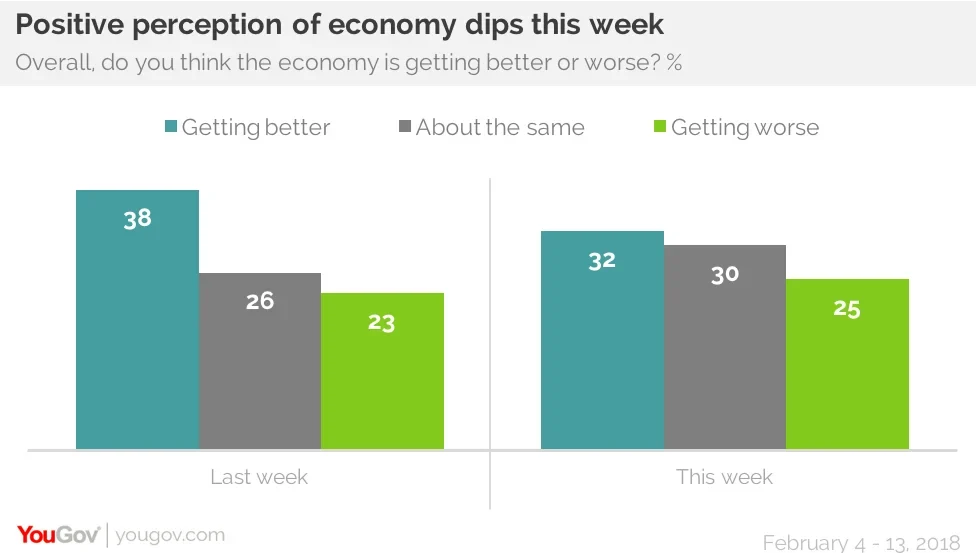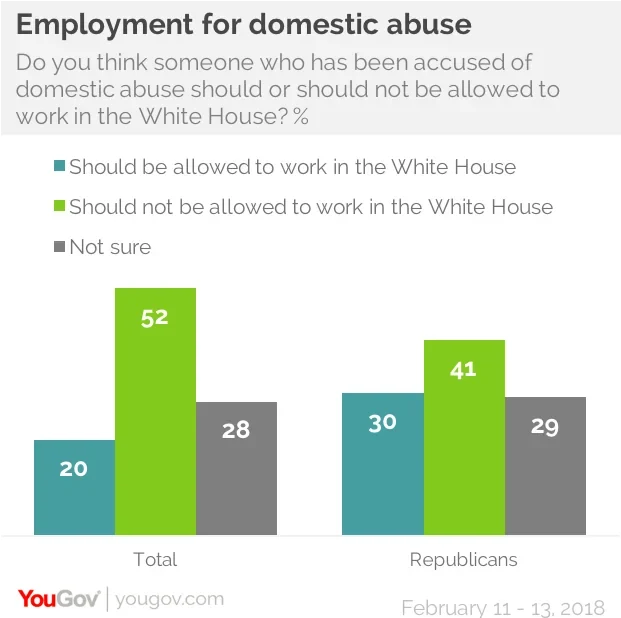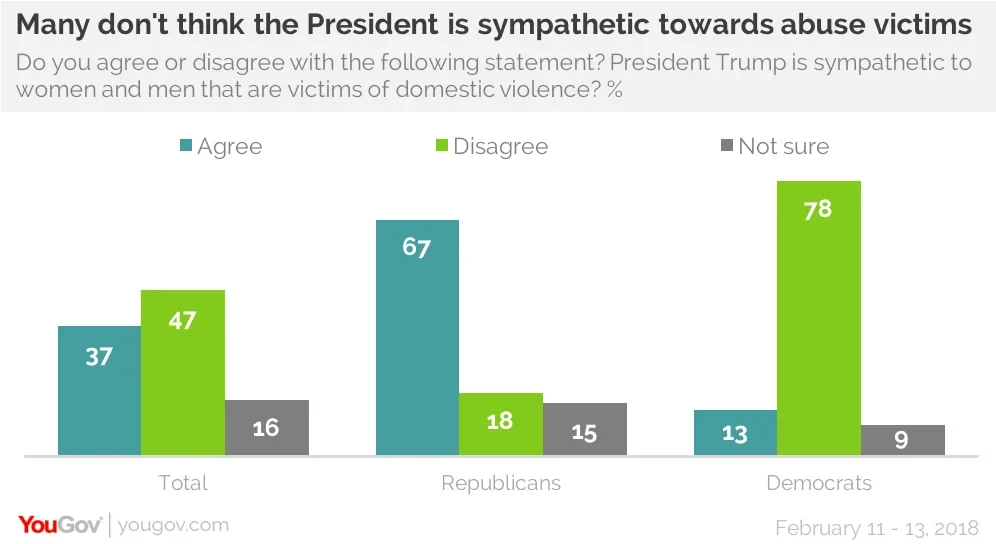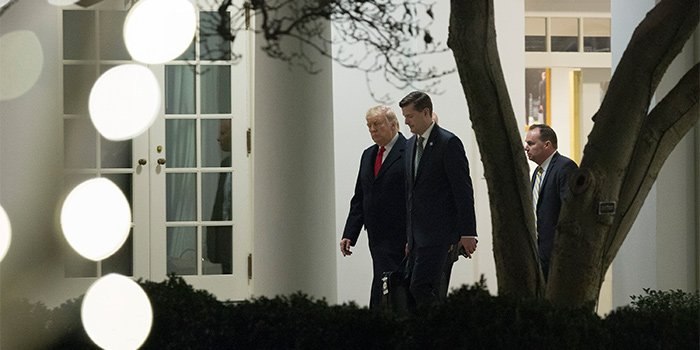Americans also approve of the latest White House resignations
For a President who has struggled to gain public support, the latest Economist/YouGov poll provides some good news, but also underscores some continuing concerns. President Trump’s overall approval rating is back above 40% -- 41% this week approve of how he is handling the job -- and the tax law is creeping up in positive evaluation. But Americans can still worry.
A good economy and a soaring stock market have been strengths for the President. Public assessment of the state of the economy had been improving dramatically (with last week’s poll marking a high point since the Economist/YouGov poll began tracking this). Even after the stock market began to drop just over a week ago, 38% believed the economy was getting better. But this week, while opinion remains more positive than negative, that percentage has dropped six points.
There has been no change in the last week in the percentage saying the economy is getting worse.
The new tax law is beginning to find acceptance, too, though primarily from Republicans. While the tax plan was being debated, Americans were negative. Now the public is positive – though narrowly. This week, 38% support the tax plan, 34% oppose it. And only 18% think they will pay more in taxes because of it.
But if the tax law is finding grudging acceptance, threats of budget deficits still concern the public. Americans recognize they know little about last week’s budget deal, and those with an opinion are just about as likely to disapprove as approve of it. However, when it comes to supporting popular programs at the risk of increasing the deficit, many are willing. Both Republicans and Democrats favor increased spending on infrastructure and combating the opioid epidemic, even if that increases the deficit.
There is no partisan agreement when it comes to military spending. Just 28% of Democrats favor increased spending on the military if it increased the deficit, compared to 74% of Republicans who do.
And while the public continues to grade the President positively on his handling of the economy (45% approve, 39% disapprove), and divide closely on his handling of taxes, the assessment of President Trump’s handling of the deficit is clearly negative. Only a third approve, while nearly half disapprove. While Republicans approve his handling of the deficit 64% to 23%, this rating is significantly lower than the 84% to 7% positive evaluation Mr. Trump earns from Republicans on his management of the overall economy.
Beyond the economy, White House personnel issues continue to be a problem. Two staff members just resigned because of charges of domestic abuse, and the White House had been slow to respond, while the President expressed concern for the men accused in a tweet that mentioned lives “shattered and destroyed” by mere allegations.
This statement does not reflect public concern about domestic abuse, and what they see as appropriate punishments. There are clear gender differences on this issue: women are far more likely than men to perceive the seriousness of both sexual harassment and domestic abuse. Half of all women say sexual harassment is “very serious,” and even more note that about domestic abuse.
 The public sets some limits on to handle allegations of domestic abuse. When it comes to White House jobs and security clearances, they see no reason those accused of domestic abuse should get either. A majority does not think someone accused of domestic abuse should be granted a top secret security clearance (the FBI and the White House disagree on what had happened with former White House aide Rob Porter’s security clearance process). A majority also says someone accused of domestic abuse should not be allowed to work in the White House, and a majority also agrees that it was fair that White House staffers resigned due to allegations of abuse.
The public sets some limits on to handle allegations of domestic abuse. When it comes to White House jobs and security clearances, they see no reason those accused of domestic abuse should get either. A majority does not think someone accused of domestic abuse should be granted a top secret security clearance (the FBI and the White House disagree on what had happened with former White House aide Rob Porter’s security clearance process). A majority also says someone accused of domestic abuse should not be allowed to work in the White House, and a majority also agrees that it was fair that White House staffers resigned due to allegations of abuse.

On these questions Republicans, though by a smaller margin, say the same.

But there is less public clarity on whether or not someone in general should be fired over such accusations. 25% say they should, 37% disagree and the rest aren’t sure.
And once the questioning went to this White House and the President, partisanship mattered again – and on some questions, more than gender. Americans don’t think the President is sympathetic with victims of domestic violence, but Republicans – male and female – say he is. Republicans also say that the President’s words of support for the staffers so accused were appropriate, something the public overall does not.
Read the latest topline and tables results here
Photo: Getty












